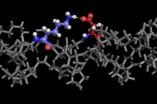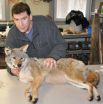(Press-News.org) Personal View: Medical screening of older drivers is not evidence based
Medical screening of older drivers is misguided and typifies a "worrying lack of due diligence" by the medical profession, warns a senior doctor on bmj.com today.
Professor Desmond O'Neill, Consultant Physician in Geriatric and Stroke Medicine at Trinity College Dublin, argues that older drivers not only have an enviable crash record, but they also raise traffic safety among other generations: the risk of serious injury to children is halved if driven by grandparents rather than parents. "Yet the belief that older drivers pose a disproportionate risk to other road users refuses to die."
He points to a recent report from a UK parliamentary charity that "disappointingly overstates the risk of older drivers and recommends training for them, an unnecessary measure of dubious value," he says. Likewise, many jurisdictions demand medical screening of all older drivers, "with the tacit or active acquiescence of the medical profession."
Several factors contribute to this professional lassitude, says Professor O'Neill, such as confusing increased risk of death because of fragility with crash risk, and concerns that age related cognitive impairment and dementia might still justify mass screening of older drivers.
However, a recent study lays the latter issue to rest. When the Danish government added a cognitive screening test to the medical screening test for older drivers, it did not reduce the rate of older people dying in car crashes but significantly increased the rate of older (but not younger) people killed as unprotected road users – that is, pedestrians and cyclists.
"This hazardous shift from protected to unprotected road user mirrors that found in previous studies on medical screening," says Professor O'Neill, and "should quench the misguided thirst for screening and direct our attention to the real health issues facing our older patients who drive."
He calls for "transportation that is flexible and responsive to the needs of older people" as well as car safety features "designed with the increased fragility of later life in mind." The abolition of age related medical screening and better guidelines for doctors could also play an important role, he adds.
Rather than mass screening, "we should focus on evidence based innovations, such as restricted licensing and rehabilitation, for people with age-related illness," he says. "This is the best approach to protect the safe mobility, and avoid further unhelpful stigmatisation, of a group whose ranks most of us will join in due course."
### END
Medical screening for older drivers is misguided, argues senior doctor
Age related testing 'breaks almost every tenet of screening'
2012-09-26
ELSE PRESS RELEASES FROM THIS DATE:
Backpack-toting birds help UBC researchers reveal migratory divide, conservation hotspots
2012-09-26
By outfitting two British Columbia subspecies of Swainson's thrushes with penny-sized, state-of-the-art geolocators, University of British Columbia researchers have been able to map their wildly divergent migration routes and pinpoint conservation hotspots.
"Birds of a feather do not necessarily flock together," says Kira Delmore, a PhD student with UBC's Department of Zoology and lead author of the paper. "Our teams of thrushes took dramatically different routes to get to their wintering grounds, either south along the west coast to Central America, or southeast to Alabama ...
Doctors' 'gut feeling' should not be ignored
2012-09-26
Doctors who experience a gut feeling about serious illness when treating a child in primary care should take action upon this feeling and not ignore it, a study published today on bmj.com suggests.
Serious infection can easily be missed in young children and making a diagnosis has been described as "like finding a needle in a haystack". A clinician's intuitive feeling that something is wrong, even after examination that suggests otherwise, appears to have diagnostic value, even greater diagnostic value than most symptoms and signs. Studies have suggested it should be ...
Rice University lab encodes collagen
2012-09-26
HOUSTON – (Sept. 25, 2012) – The human body is proficient at making collagen. And human laboratories are getting better at it all the time.
In a development that could lead to better drug design and new treatments for disease, Rice University researchers have made a major step toward synthesizing custom collagen. Rice scientists who have learned how to make collagen – the fibrous protein that binds cells together into organs and tissues – are now digging into its molecular structure to see how it forms and interacts with biological systems.
Jeffrey Hartgerink, an associate ...
Hubble goes to the 'eXtreme' to assemble the deepest ever view of the universe
2012-09-26
The Hubble Ultra Deep Field is an image of a small area of space in the constellation of Fornax (The Furnace), created using Hubble Space Telescope data from 2003 and 2004. By collecting faint light over one million seconds of observation, the resulting image revealed thousands of galaxies, both nearby and very distant, making it the deepest image of the Universe ever taken at that time.
The new full-colour XDF image is even more sensitive than the original Hubble Ultra Deep Field image, thanks to the additional observations, and contains about 5500 galaxies, even within ...
Oropharyngeal cancer patients with HPV have a more robust response to radiation therapy
2012-09-26
(SACRAMENTO, Calif.) — UC Davis cancer researchers have discovered significant differences in radiation-therapy response among patients with oropharyngeal cancer depending on whether they carry the human papillomavirus (HPV), a common sexually transmitted virus. The findings, published online today in The Laryngoscope Journal, could lead to more individualized radiation treatment regimens, which for many patients with HPV could be shorter and potentially less toxic.
HPV-related cancers of the oropharynx (the region of the throat between the soft palate and the epiglottis, ...
Images reveal potential for NIR imaging to detect success of breast reconstruction
2012-09-26
In 2010 breast reconstruction entered the Top Five list of reconstructive procedures in the US, with 93,000 procedures performed, up 8% from 2009, and 18% from 2000. This is among the most common skin flap procedure performed.
Skin flaps are typically used to cover areas of tissue loss or defects that arise as a result of traumatic injury, reconstruction after cancer excision and repair of congenital defects. In the case of a mastectomy—the surgical removal of the breast—skin flaps are commonly used to create a new breast. Most commonly these flaps are derived from the ...
Hotter might be better at energy-intensive data centers
2012-09-26
As data centres continue to come under scrutiny for the amount of energy they use, researchers at University of Toronto Scarborough (UTSC) have a suggestion: turn the air conditioning down.
"We see our results as strong evidence that most organizations could run their data centers hotter than they currently are without making significant sacrifices in system reliability," says Bianca Schroeder, a UTSC assistant professor of computer science.
As data centres have proliferated they have required more energy, accounting now for about 1 percent of global electricity usage. ...
Starting to snore during pregnancy could indicate risk for high blood pressure, U-M study says
2012-09-26
Ann Arbor, Mich. – Women who begin snoring during pregnancy are at strong risk for high blood pressure and preeclampsia, according to research from the University of Michigan.
The research, published in the American Journal of Obstetrics and Gynecology, showed pregnancy-onset snoring was strongly linked to gestational hypertension and preeclampsia, says lead author Louise O'Brien, Ph.D., associate professor in U-M's Sleep Disorders Center.
"We found that frequent snoring was playing a role in high blood pressure problems, even after we had accounted for other known ...
Urban coyotes never stray: New study finds 100 percent monogamy
2012-09-26
COLUMBUS, Ohio - Coyotes living in cities don't ever stray from their mates, and stay with each other till death do them part, according to a new study.
The finding sheds light on why the North American cousin of the dog and wolf, which is originally native to deserts and plains, is thriving today in urban areas.
Scientists with Ohio State University who genetically sampled 236 coyotes in the Chicago area over a six-year period found no evidence of polygamy - of the animals having more than one mate - nor of one mate ever leaving another while the other was still alive.
This ...
Prison rehab tied to parole decisions
2012-09-26
According to a new study co-authored by Simon Fraser University economics professor Steeve Mongrain, parole board decisions can have a huge impact on whether or not prisoners are motivated to rehabilitate.
The Journal of Law, Economics and Organization, has just published their study Rehabilitated or Not: An Informational Theory of Parole Decisions online.
Mongrain and his colleagues argue that parole boards need to consider the length of prisoners' original sentences, as well as their behaviour in prison, in granting early parole and determining eligibility for parole ...
LAST 30 PRESS RELEASES:
Nanoplastics can interact with Salmonella to affect food safety, study shows
Eric Moore, M.D., elected to Mayo Clinic Board of Trustees
NYU named “research powerhouse” in new analysis
New polymer materials may offer breakthrough solution for hard-to-remove PFAS in water
Biochar can either curb or boost greenhouse gas emissions depending on soil conditions, new study finds
Nanobiochar emerges as a next generation solution for cleaner water, healthier soils, and resilient ecosystems
Study finds more parents saying ‘No’ to vitamin K, putting babies’ brains at risk
Scientists develop new gut health measure that tracks disease
Rice gene discovery could cut fertiliser use while protecting yields
Jumping ‘DNA parasites’ linked to early stages of tumour formation
Ultra-sensitive CAR T cells provide potential strategy to treat solid tumors
Early Neanderthal-Human interbreeding was strongly sex biased
North American bird declines are widespread and accelerating in agricultural hotspots
Researchers recommend strategies for improved genetic privacy legislation
How birds achieve sweet success
More sensitive cell therapy may be a HIT against solid cancers
Scientists map how aging reshapes cells across the entire mammalian body
Hotspots of accelerated bird decline linked to agricultural activity
How ancient attraction shaped the human genome
NJIT faculty named Senior Members of the National Academy of Inventors
App aids substance use recovery in vulnerable populations
College students nationwide received lifesaving education on sudden cardiac death
Oak Ridge National Laboratory launches the Next-Generation Data Centers Institute
Improved short-term sea level change predictions with better AI training
UAlbany researchers develop new laser technique to test mRNA-based therapeutics
New water-treatment system removes nitrogen, phosphorus from farm tile drainage
Major Canadian study finds strong link between cannabis, anxiety and depression
New discovery of younger Ediacaran biota
Lymphovenous bypass: Potential surgical treatment for Alzheimer's disease?
When safety starts with a text message
[Press-News.org] Medical screening for older drivers is misguided, argues senior doctorAge related testing 'breaks almost every tenet of screening'


